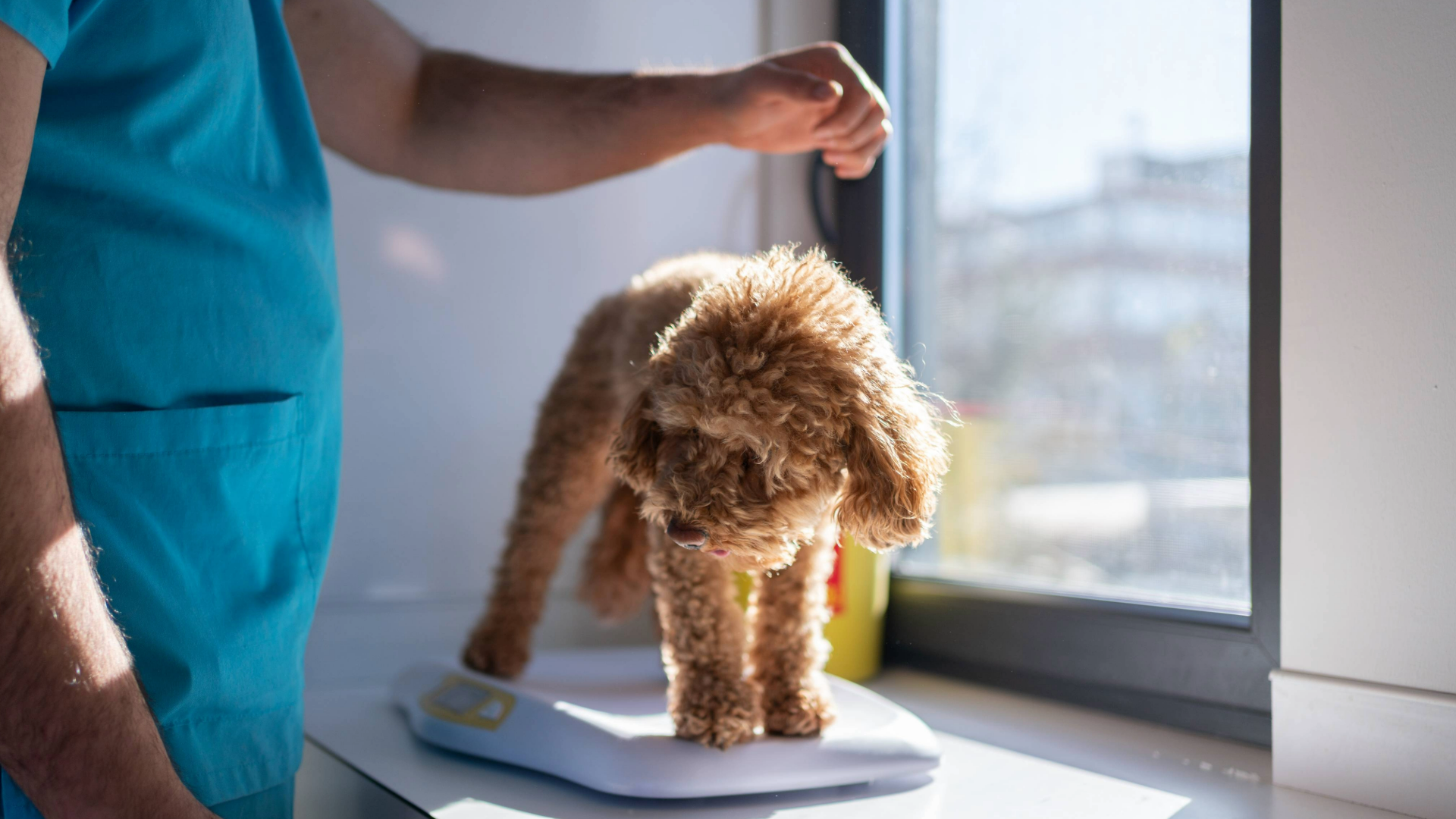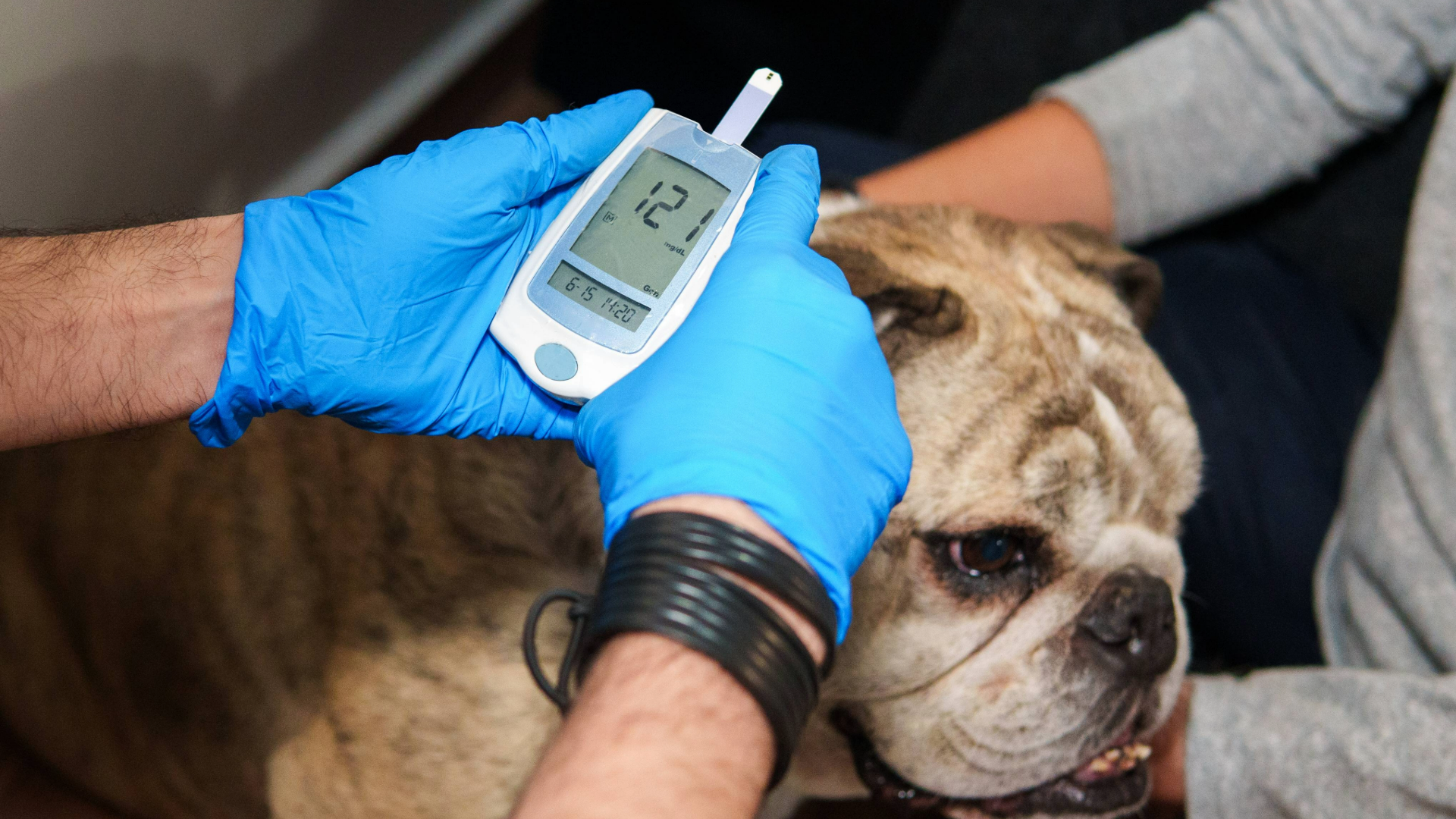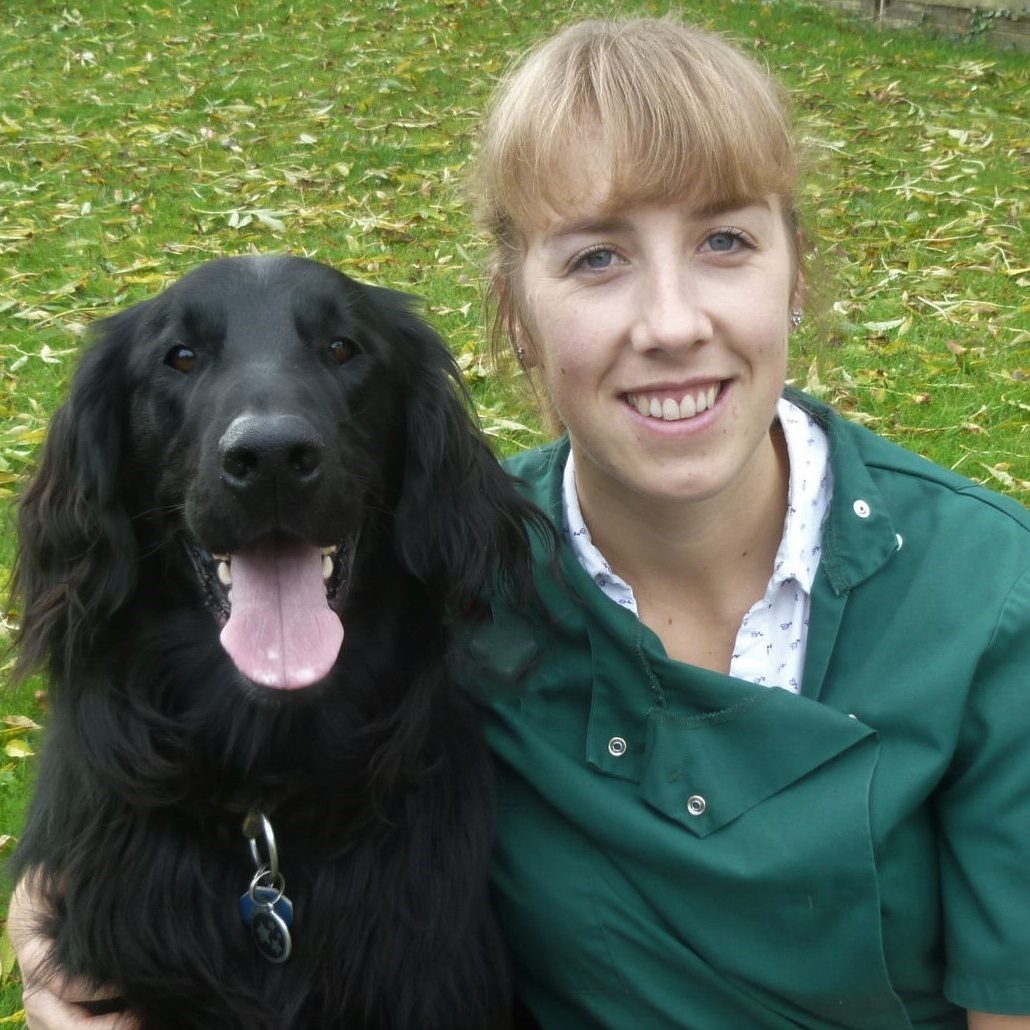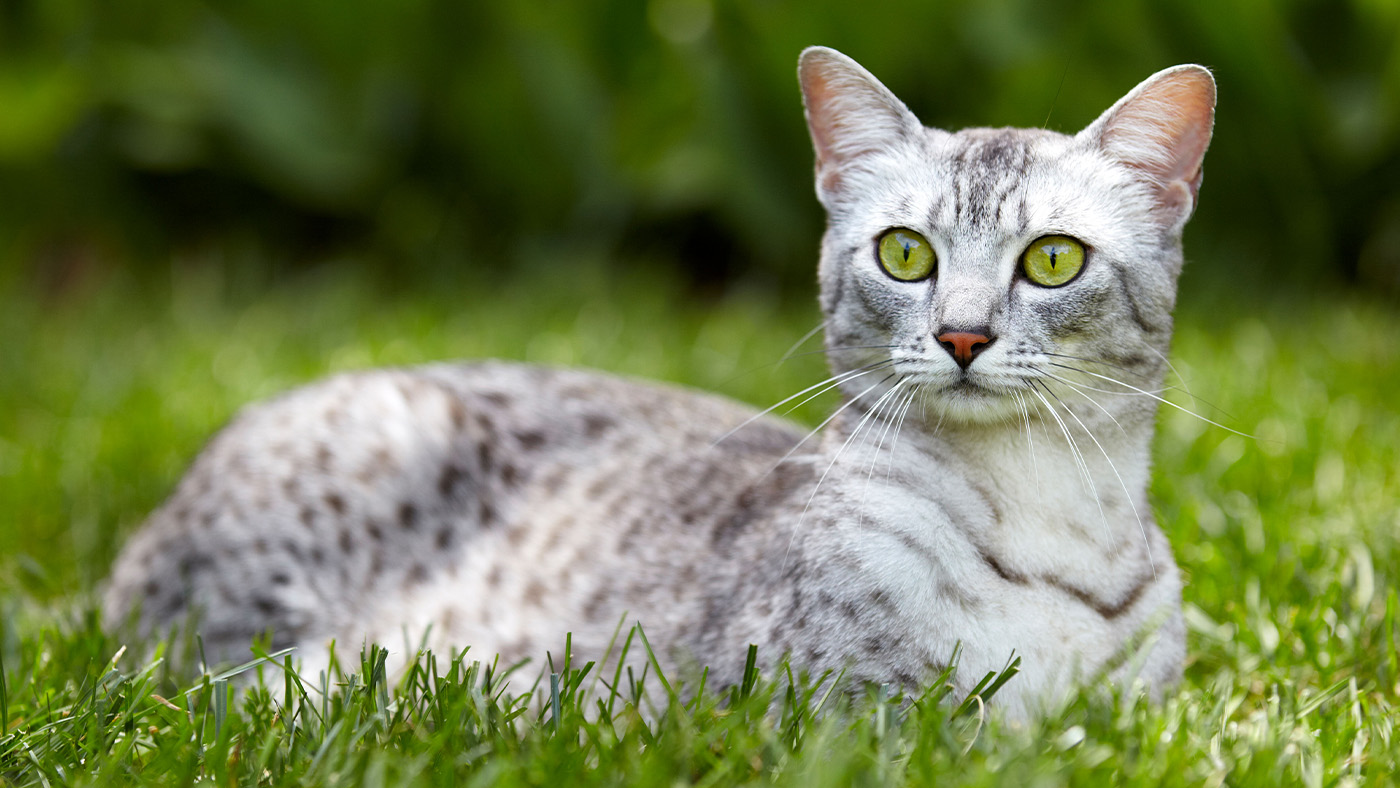Is your dog losing weight? A vet shares 5 causes and how to reverse it
An expert explains why your dog is losing weight (plus what to do about it).

If you’ve noticed your dog losing weight, it’s not always due to a lack of the best dog food; it could also indicate an underlying health issue.
Your dog’s weight can tell you a lot about their overall health, so if you’ve noticed any unusual changes, it’s important to have a conversation with your vet. Weight loss in dogs is a common symptom of conditions such as diabetes, chronic kidney disease, and cancer, so it shouldn’t be ignored or overlooked.
However, illness isn’t the only reason your dog might be losing weight. Increased exercise (without sufficient caloric intake to meet their energy needs) can also be behind it, and you might need to adjust their diet and fitness routine.
Below, we’ve explained the most common causes of weight loss in dogs, with the help of expert vets Dr. Elizabeth Racine and Dr. Rebecca MacMillan.
Dog losing weight: Causes
1. Increased activity
When your dog is getting more exercise, their body is burning more calories. To keep up with these energy demands, your dog has to consume more calories. If your dog's diet and calorie intake are not modified to account for the extra activity, your dog will start to lose weight. For some pets, shedding a few extra pounds may help them get to a more appropriate, healthier weight. For others, a change in diet is necessary to prevent them from losing too much weight and to accommodate the increased activity levels.
If you have concerns about whether or not your pet is consuming enough calories, schedule an appointment with your veterinarian. They can help you evaluate your pet's diet and exercise regimen. If extra activity does not explain your pet’s weight loss, your vet can also look for other reasons your pet may be losing weight.
2. Pain and weight loss
Pain can make eating difficult and it can decrease your dog's appetite. Different types of pain can affect your dog’s eating habits, but mouth pain is the most common. A damaged or infected tooth can make chewing kibble an excruciating task. When eating becomes painful, pets are less likely to consume enough food and will start to lose weight. Brushing your pet's teeth and making sure they get routine dental care is critical to keep your pet's mouth healthy.
Get the best advice, tips and top tech for your beloved Pets
Here are some of the signs a dog is in pain.
Petsmile Professional Pet Tooth Brushing Kit
This dental kit helps reduce plaque and tartar build-up in your dog’s mouth, preventing serious issues that can be painful and stop your dog from eating. The toothpaste is certified by the Veterinary Oral Health Council, and we voted it the best dog toothpaste, thanks to its beneficial ingredients.
Orthopedic pain and other forms of pain can also decrease your pet's appetite. If your pet is usually a good eater and suddenly stops finishing their meals, this should be a red flag that indicates something is wrong. Pain that is not addressed or adequately controlled can lead to ongoing inappetence and weight loss. Determining the source of the pain and relieving it is essential to get your pet back to living a happy, comfortable life.
Here are 11 things to check when your dog is not eating.
3. Digestion issues

There’s no NHS for pets. Veterinary care can be eye-wateringly expensive and most pets will need treatment for an illness or injury at some point in their life. It’s difficult to think about your animals being hurt or unwell, but you need to ask yourself: what would you do if you were faced with a vet bill for hundreds or thousands of pounds?
Consumption of food is only the first step in ensuring your pet gets the proper nutrition to fuel their body. Once the food is consumed, the body needs to break down the food and absorb the nutrients. Gastrointestinal disorders can disrupt this process and prevent the body from getting proper nutrition. When dogs vomit or experience diarrhea, calories are lost, and nutrients are not adequately absorbed.
Chronic diarrhea in dogs can be a sign of irritable bowel syndrome, parasitism, or other gastrointestinal disorders. Over time, these digestion issues can lead to weight loss because the body is not getting enough nourishment. It is essential to determine the underlying problem to get your dog's health back on track. Often times this requires diagnostic testing performed by your vet and possibly changing dog food or diet. Without the appropriate care, your pet may continue to lose weight even if they maintain a healthy appetite.

4. Cancer
One of the most concerning causes of weight loss in dogs is cancer. Weight loss due to cancer occurs for a variety of different reasons. As cancer grows and spreads throughout the body, fast-dividing cancer cells consume an enormous amount of energy. This consumption of energy not only drains the vital nutrients that your dog’s body needs, but it can also interfere with the body's ability to utilize the few nutrients that are still available.
In the later stages of cancer, dogs may experience nausea and a decrease in appetite. Likewise, the tumor can be painful or make eating difficult. Oral tumors can cause obstructions that complicate swallowing. As the cancer continues to spread, a decrease in food consumption will result in a loss of body fat and muscle mass.
Unfortunately, by the time most pet owners notice the weight loss, the cancer can be advanced. Many cancers that cause weight loss are aggressive and challenging to treat. In some cases, they are life-threatening. Although cancer is usually associated with older dogs, it can affect dogs of all ages. Regular health screenings are critical to detect early signs of disease.
Redmon Precision Digital Weighing Scale for Pets
To keep an eye on your dog's weight, you'll need to invest in one of the best scales for pets, and we recommend this one by Redmon. It features an LCD display, a non-skid rubber mat, and can measure up to 225lbs.
5. Metabolic disorders
Several metabolic disorders can contribute to weight loss in dogs. These can include conditions such as diabetes mellitus in dogs and hypoadrenocorticism, more commonly known as Addison’s disease. Pets suffering from these conditions are typically losing weight despite an increased appetite. With these metabolic disorders, the body cannot convert the food your pet is consuming into the energy that the body needs. Your dog's appetite will often increase as your dog's body attempts to get those nutrients by consuming more food. Unfortunately, this does not solve the problem, and your dog will begin to lose weight.
Weight loss in these situations can be gradual. Other symptoms of these metabolic disorders include increased thirst and urination. If you notice any of these symptoms, schedule a visit with your vet. Medication may be necessary to treat the underlying condition and stop your dog losing weight.

Monitor your dog closely for signs of weight loss
There are many reasons your dog may be losing weight. Some of these reasons are straightforward and easy to resolve. However, your dog's weight loss can also be a sign of more concerning health problems. Gradual weight loss is often a result of chronic conditions and can take a while for pet owners to notice. It is essential to keep a close eye on your pet's weight. If you notice your dog losing weight, take a closer look at what your pet is eating and if they are exhibiting any unusual symptoms or changes in activity.
Weight loss is not something to be ignored. Knowing the common causes of weight loss can help you be more vigilant so you can catch potential problems early. If you are concerned about your dog losing weight, contact your veterinarian for further advice.
If you’ve noticed that your pup isn’t gaining weight, it might be a sign of fading puppy syndrome. Or, read next about hypothyroidism in dogs

Rebecca is a veterinary surgeon who graduated in 2009 from the Royal Veterinary College in London. She has a wealth of experience in first opinion small animal practice, having done a mixture of day-to-day routine work, on-call emergency duties and managerial roles over the years. She enjoys medicine in particular and she is proud to have recently achieved a BSAVA postgraduate certificate in small animal medicine (with commendation). She writes on various feline and canine topics, including behavior, nutrition, and health. Outside of work and writing she enjoys walking her own dog, spending time with her young family and baking!
Dr. Elizabeth Racine is a small animal general practice vet covering all things pet health and wellness. Her special interests include veterinary behavior, nutrition, and internal medicine.
As a freelance writer, Dr. Racine has written content for major companies in the industry such as the American Kennel Club, Merck Animal Health, Bayer PetBasics, Elanco, and CareCredit. In her free time, Dr. Racine enjoys playing trampoline dodgeball, hiking with her beagle Dasher, and spending time with her three mischievous cats.



